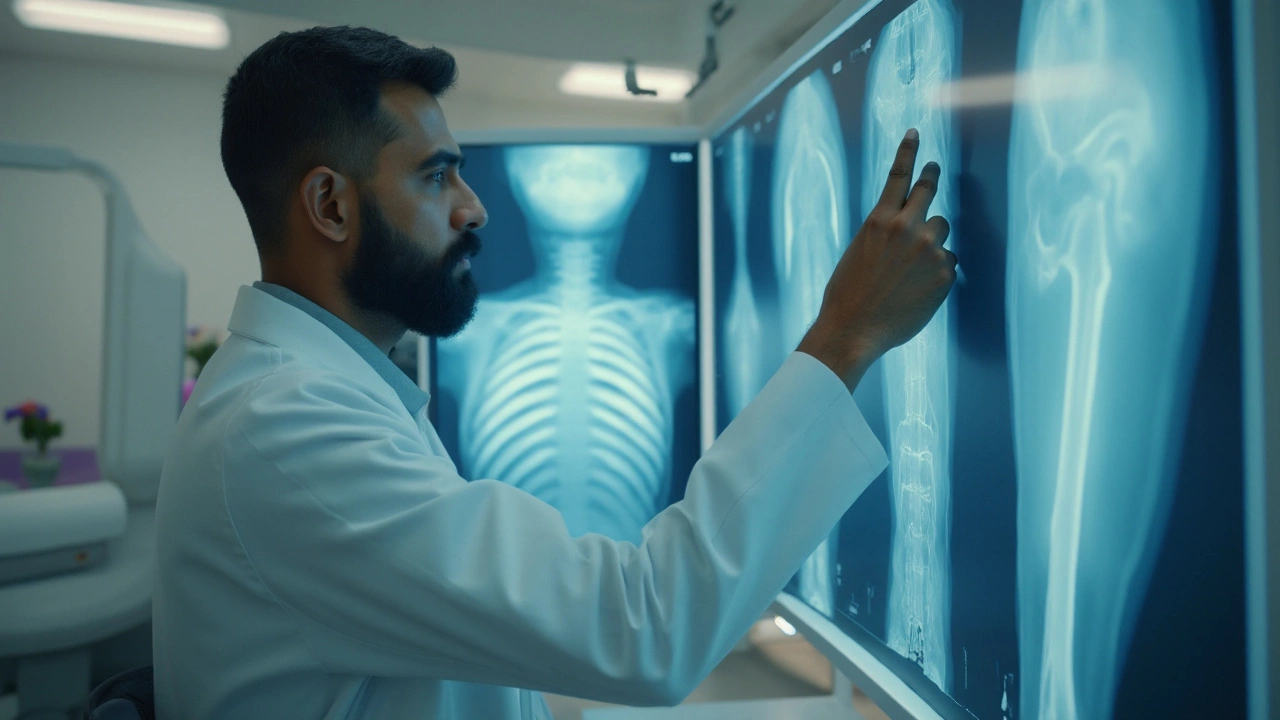Orthopedic Referral 101: Your Quick Start Guide
Got a doctor’s note saying you need an ortho specialist? You’re not alone. Many people wonder what a referral really means and how to make the most of it. In India, the process is pretty straightforward, but a few hiccups can turn it into a headache if you’re not prepared.
First off, a referral is simply a written recommendation from your primary doctor or GP that tells an orthopedic surgeon you need specialized care. It’s not a permission slip; it’s more like a roadmap that helps the specialist understand why you’re coming in.
How to Get the Referral
Usually you’ll walk into your family doctor’s clinic with pain, a swelling, or limited movement. The doctor will run a quick exam, maybe order a basic X‑ray, and then decide if you need a specialist. If they do, they’ll write a referral note that includes your basic details, the reason for the referral, and any initial test results.
Keep a copy of that note—either a printed version or a clear photo on your phone. Some hospitals accept digital PDFs, but a hard copy never hurts.
What Happens at the First Orthopedic Appointment
When you step into the orthopedic clinic, the surgeon will review your referral, ask you about your symptoms, and often repeat the physical exam. Expect to discuss:
- When the pain started and what makes it worse.
- Any injuries, surgeries, or illnesses you’ve had before.
- Your daily activities and how the problem affects them.
Based on that conversation, the doctor may order more detailed imaging—like an MRI, CT scan, or a more specific X‑ray. In many Indian hospitals, these tests are done on the same day if the imaging department is nearby.
Costs can vary a lot. A basic X‑ray might run under ₹500, while an MRI can be ₹5,000‑₹10,000 depending on the city and the facility. Some private clinics bundle the consult and the scan into one fee, which can save you a few bucks.
After the tests, the orthopedist will sit down with you and explain the findings. This is the perfect time to ask practical questions like:
- What are my treatment options—physiotherapy, medication, or surgery?
- How long will recovery take?
- What will the total cost be, and are there any hidden fees?
Don’t be shy. The more you understand, the easier it is to stick to the plan.
If surgery is recommended, the surgeon will walk you through the procedure, anesthesia type, and post‑op care. They’ll also tell you when you’ll need to come back for follow‑up visits and what rehab exercises you’ll start right away.
For non‑surgical routes, you’ll likely get a mix of pain‑relief meds, a tailored physiotherapy schedule, and lifestyle tweaks—like weight management or ergonomic changes at work.
One trick many patients overlook: bring a list of any current medicines, supplements, or herbal remedies. Orthopedic surgeons appreciate knowing about everything you take, especially if you’re on blood thinners or steroids.
After the appointment, you’ll receive a discharge summary. Keep it safe; it’s your reference for future visits and any physiotherapy clinics you might go to.
In short, a referral is just the first step. Being organized, asking the right questions, and understanding the cost structure will turn that first ortho visit into a smooth experience.
Ready to schedule your appointment? Grab that referral note, double‑check the hospital’s location, and set a reminder for any pre‑visit labs. You’ll be on your way to better joint health in no time.

Understanding the Need for an Orthopedic Referral: When to Seek Expert Care
Orthopedic specialists play a crucial role in diagnosing and treating conditions related to bones, joints, and muscles. A referral to an orthopedic doctor might be necessary if you're experiencing chronic pain, limited mobility, or have suffered a significant injury. These experts offer advanced diagnostics, such as imaging techniques, and tailor treatments ranging from physical therapy to surgery. Understanding when to visit an orthopedic can improve your recovery process and quality of life.

Best Natural Herb for Your Health: A Deep Dive
Feb, 26 2025



